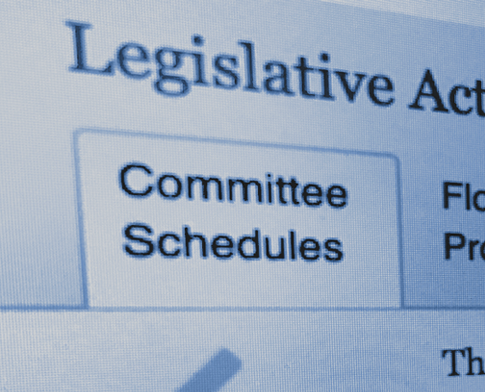Health Update (September 21)
CR Negotiations Continue
Lawmakers continue to debate the contents of a continuing resolution (CR) to extend the federal budget beyond the Sep. 30. Negotiators say they have reached a deal ‘in principal.’ As of 5:30 EDT, the text has not been released.
The House Rules Committee will meet Monday (Sep. 20) to decide rules for debate on the CR.
Trump Expands Most Favored Nation EO
Sunday evening (Sep. 13), President Trump released an executive order (EO) to expand his controversial “Most Favored Nation” EO, which requires pharmaceutical companies to sell drugs to Medicare based on the International Pricing Index (IPI), to drugs in Medicare Part D where insufficient competition exists. The original order was limited to Part B pharmaceuticals products. The EO aims lower drug prices for seniors but is likely to be challenged in the courts.[1]
It is unlikely the administration will be able to implement the order prior to the Nov. 3 election, however, the action gives the President another talking point in his drug pricing rapport.
Pharmaceutical manufacturers oppose the ‘Most Favored Nation’ policy and its expansion.
“The Administration has chosen to pursue the most favored nation policy – an irresponsible and unworkable policy that will give foreign governments a say in how America provides access to treatments and cures for seniors and people struggling with devastating diseases,” Drug lobby PhRMA CEO Stephen J. Ubl said in a statement.
“What’s worse is that they are now expanding the policy to include medicines in both Medicare Part B and Part D, an overreach that further threatens America’s innovation leadership and puts access to medicines for tens of millions of seniors at risk,” he added.
House Speaker Nancy Pelosi (D-CA) and Senate Minority Leader Chuck Schumer (D-NY) also blasted the announcement.
“President Trump’s latest empty announcement is an insult to all the seniors and families who are still waiting for real action to lower their prescription drug costs,” the leaders wrote in a joint statement.
“Again, President Trump should stop making a big deal of hollow executive actions that he knows won’t work,” they added.
To view the complete text of the Executive Order, click here.
Admin Outlines Plan for Vaccine Distribution
On Wednesday (Sep. 16), CDC, HHS, and DoD released two documents outlining the administration’s plan for distributing a COVID-19 vaccine. The first document – the Strategy for Distributing a COVID-19 Vaccine – described the objective of Operation Warp Speed (OWS) and details the requirements of the four steps that will be taken following FDA approval of a vaccine candidate to ensure every American can access a vaccine. These steps are as follows:
- Continue engaging with state, tribal, territorial, and local partners, other stakeholders, and the public to communicate public health information, before and after distribution begins, around the vaccine and promote vaccine confidence and uptake.
- Distribute vaccines immediately upon granting of Emergency Use Authorization/ Biologics License Application, using a transparently developed, phased allocation methodology.
- Ensure safe administration of the vaccine and availability of administration supplies.
- Monitor necessary data from the vaccination program through an information technology (IT) system capable of supporting and tracking distribution, administration, and other necessary data.
The second document – the COVID-19 Vaccine Interim Playbook for Jurisdictions – provides initial guidance to state, territorial, tribal and local public health departments on how to plan and operationalize a vaccine distribution plan for their respective jurisdictions.
To view the HHS announcement, click here.
To view the Strategy for Distributing a COVID-19 Vaccine, click here.
To view the COVID-19 Vaccine Interim Playbook, click here.
CMS Announces New ESRD ETC Models, HRSA Finalized Rule on Live Organ Donation
On Friday (Sep. 18), CMS announced its finalized a new End-Stage Renal Disease (ESRD) Treatment Choices (ETC) Model. The new model aims to improve or maintain the quality of care and reduce Medicare expenditures for patients with chronic kidney disease.
The new model will test shifting Medicare payments from traditional fee-for-service (FFS) payments to payments where providers are incentivized for encouraging receipt of home dialysis and kidney transplants. The ETC Model also incentivizes transplantation by financially rewarding ESRD facilities and clinicians based on their transplant rate calculated as the sum of the transplant waitlist rate and the living donor transplant rate.
The announcement builds upon President Trump’s Advancing American Kidney Health initiatives.
To view the CMS announcement, click here.
To view a fact sheet on the ESRD ETC, click here.
For additional information, click here.
In another move supporting the president’s kidney health initiative, the Health Resources and Services Administration (HRSA) finalized a new rule Friday (Sep. 18) to expand the scope of qualified reimbursable expenses incurred by living organ donors to include lost wages, child-care and elder-care expenses. The rule emphasizes how supporting living organ donors can help address the current demand for kidney transplants by further reducing financial disincentives to living organ donor transplantation.
To view the HRSA announcement, click here.
House GOP Unveils Commitment to America
On Tuesday (Sep. 15), House Republicans unveiled their post-election agenda. The “Commitment to America” plan includes Republican initiatives in various policy fields and calls for bipartisan solutions to tackle the nation’s debt and protect Social Security and Medicare. The proposal would also extend the child-tax credit, provide $1.75 billion for police training and equipment, and $200 billion in forgivable loans for small businesses through the Paycheck Protection Program (PPP).
House Minority Leader Kevin McCarthy (R-CA) said a hypothetical Republican majority would also implement recommendations from the House China Task Force. The policy initiatives are expected to include: efforts to increase U.S. manufacturing and reforming the supply chain for critical needs such as medicines and protective medical equipment (PPE)
“We’ve been working on this for quite some time, talking about policies that would put the country on a better track. People are very clear on what we would do (in the majority), and it shows a real contrast with what the Democrats are doing,” McCarthy said.
To view the one-pager, click here.
Senate Appropriations Review Federal COVID-19 Response
On Wednesday (Sep. 16), the Senate Appropriations Subcommittee on Labor, Health and Human Services (HHS), Education, and Related Agencies heard testimony from HHS Assistant Secretary for Health Admiral Brett Giroir, CDC Director Robert Redfield, and Assistant Secretary for Preparedness and Response (APSR) Robert Kadlec on the federal response to COVID-19.
To view an executive summary of the hearing, click here.
The Hill Hosts Webinar on Supply Chain
On Thursday (Sep. 17), The Hill hosted a webinar to discuss U.S. medical supply chains. Sen. Chris Murphy (D-CT), U.S. International Development Finance Corp. CEO Adam Boehler, Avalere Founder Dan Mendelson, and Teva Pharmaceuticals USA President and CEO Brendan O’Grady spoke on the panel.
To view an executive summary of the webinar, click here.
References
[1] Cohen, Ariel, “White House Extends Most-Favored Nation Order To Part D Drugs,” InsideHealthPolicy, 13 Sep. 2020
HOUSE.GOV
The Week Ahead
For the main events of the next week and more, go straight to the key events on the house.gov website.
SENATE.GOV
The Week Ahead
For the main events of the next week and more, go straight to the key events on the senate.gov website.


